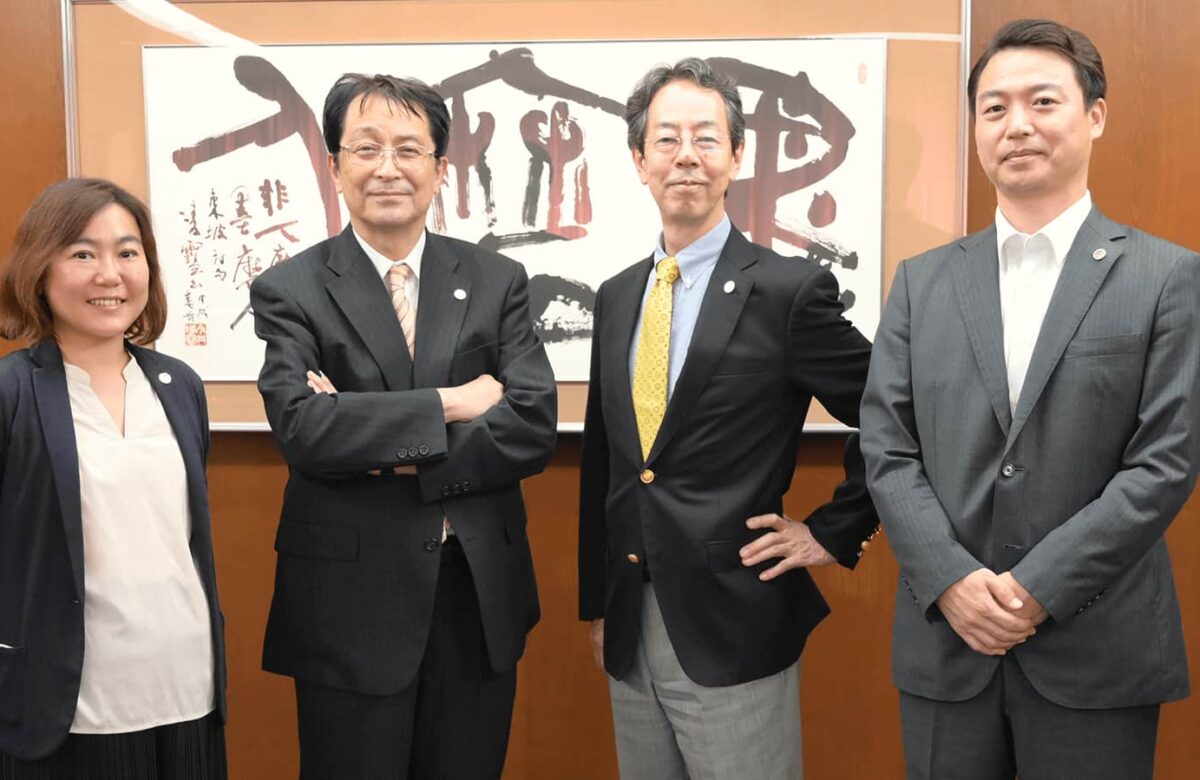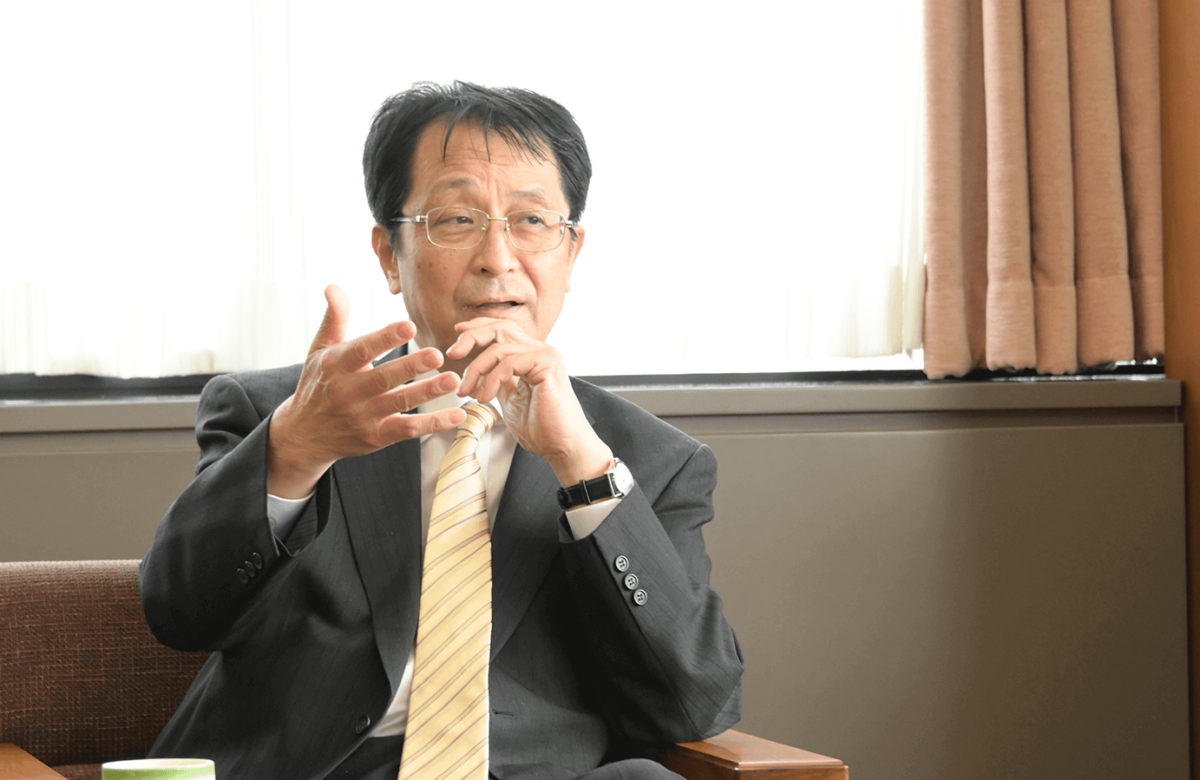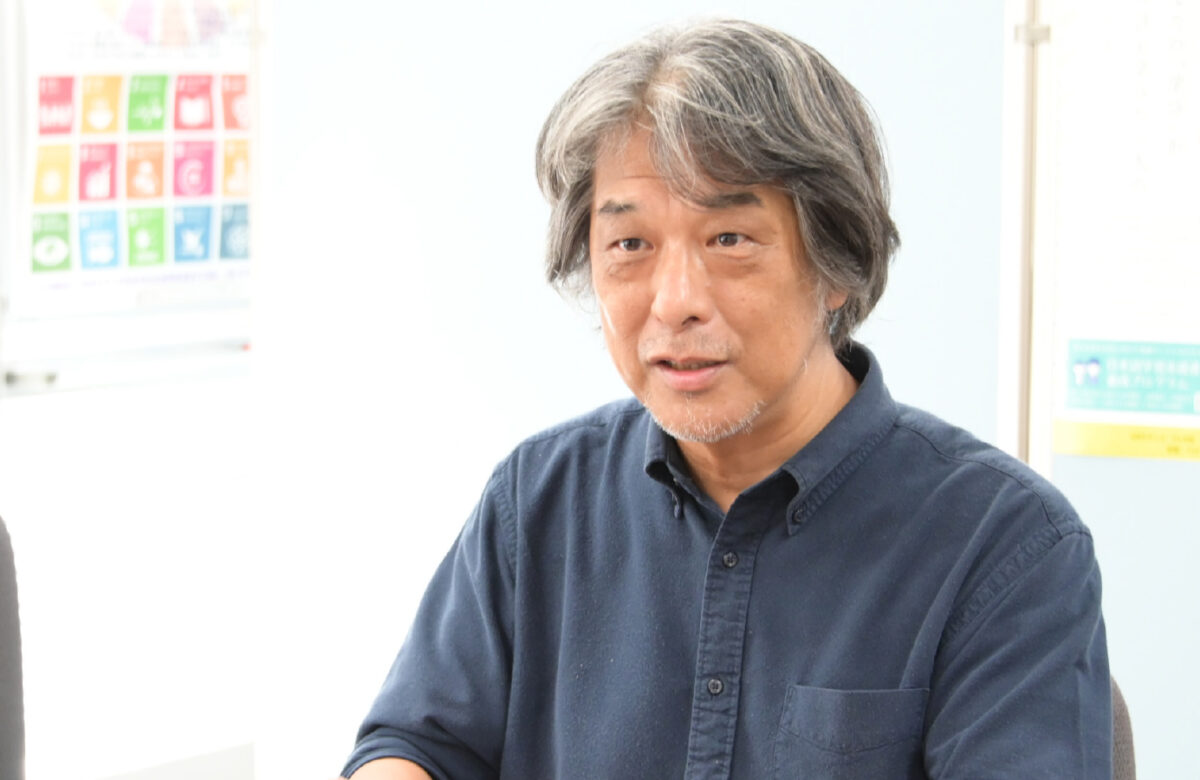Pioneering a New University Era
In this chat, the URA office members of Hokkaido University discuss their role and their understanding of what the future holds.
- InterviewArticleUniversity
- December 1, 2016
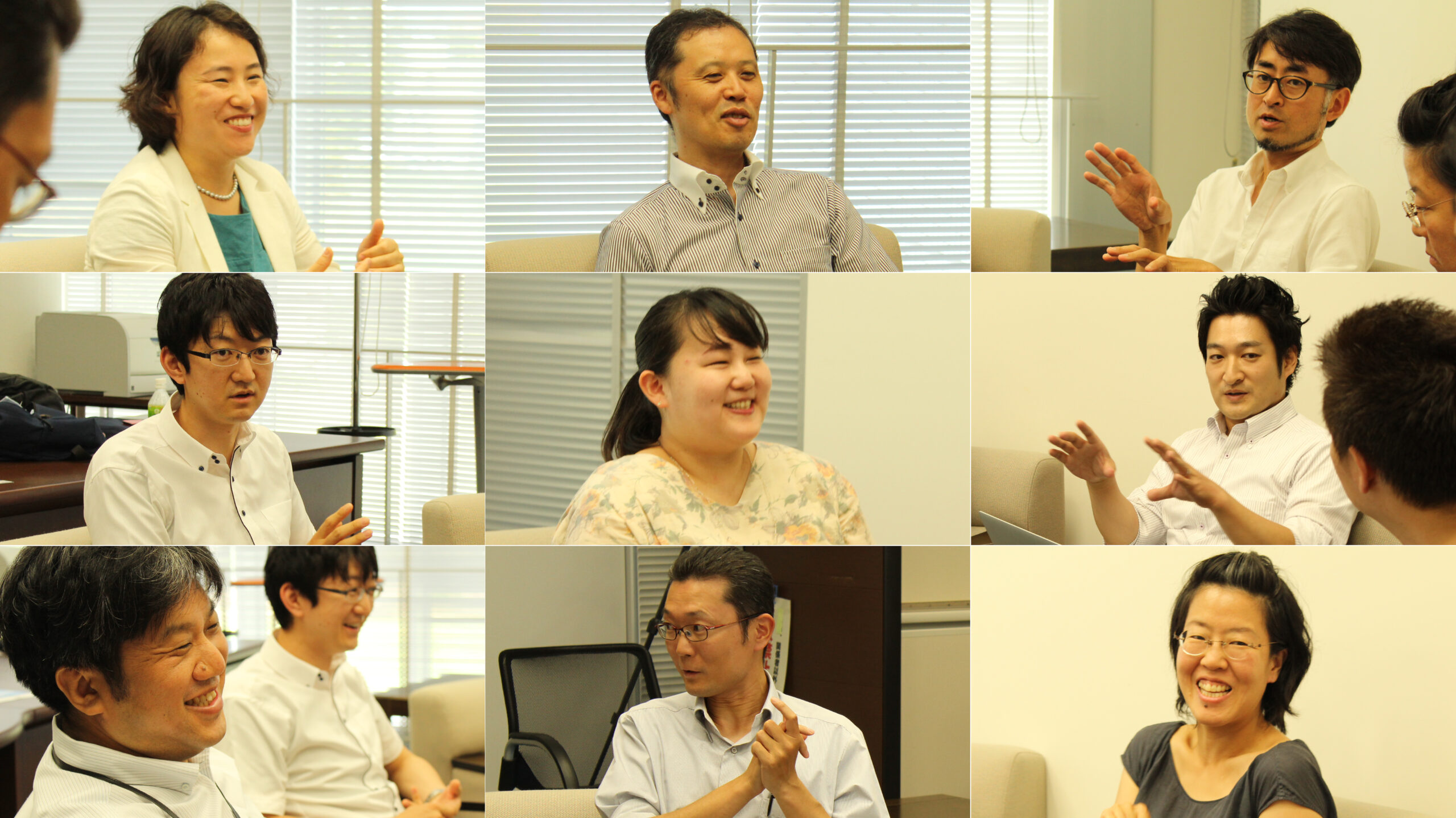
What is everybody’s definition of a URA?
Uehara I’ve only been a URA for six months, but the job is different from what I had thought. A Hokkaido University URA is more of a project manager than a personal support officer, right?
Furuhata That’s right. It has also been six months since I joined, but if I were to define my job, I’d say it’s one where I look at the university both subjectively and objectively, think about what can be done to improve the university, and work to realize an ideal situation. Not everyone in the department with a problem is able to execute its solution. The URAs work below the executives and are expected to think and act like an implementation unit.
Wada I can compare a URA to glue. Both the teaching and clerical staff have defined positions and roles, but you need glue to bring people and organizations together when working on new things.
Omata I think a URA is the “Public Security Section 9” in the anime Ghost in the Shell. Even though each URA has a different job, their work is connected to the university’s mission or the region or country’s mission. I consider myself to be that kind of flexible component.
Tanaka A researcher’s work is most innovative when conducting research activities based on his or her personal motivations. In order to support such an activity, we need to think about the university as a whole and the budget required to maintain that environment. I think a URA’s mission is to establish the Hokkaido University brand and create an environment where teachers are able to work well.
The URA work here is interesting!
Uehara Becoming a URA has been interesting because I’ve found new experiences and done things I’ve ever done before as a researcher, such as learning how decisions are taken by the university’s management, the administration, or the work.
Furuhata It’s really interesting to be connected to people in every single department. I think this is a unique aspect of a Hokkaido University URA, but because it is an organization directly under the director, we get a macro perspective of the university, which allows us to take on large projects. Former researchers such as myself don’t fit in a standard role in an organization. That is why I think it is very important for universities to create an environment where the most can be made of a researcher’s individuality.
Kato Not only are we able to directly speak to the university’s executives and teachers but also those in charge when we go to the MEXT. I don’t think I could have experienced such things had I continued on the path of a researcher, and for that, I am glad.
Wada Like Mr. Kato, I, too, find it incredibly interesting to learn again about my own university’s appeal by speaking to people at the MEXT; the Ministry of Economy, Trade and Industry (METI); and the Ministry Agriculture, Forestry and Fisheries (MAFF). Also, because the role allows us to work closely with executives and also traverse organizational boundaries, we are able to collaborate with other departments and begin projects with many teachers. These are things that can’t be done if you’re not a URA. It’s such a thrill, and I’m so glad I have this job.
Omata I’ve worked at a lot of places, but I don’t think I have ever worked with such great people, and that is what I am most happy about. I’m not trying to flatter anyone. Sharing my own thoughts and vision with other URAs allows us to create synergy.
Takagi The most interesting thing is meeting many researchers and being able to listen to their stories about being in the frontline. If one can suggest ways of improving research activities that are thought to be inconvenient so that they can be conducted more smoothly, then the work is worth doing.
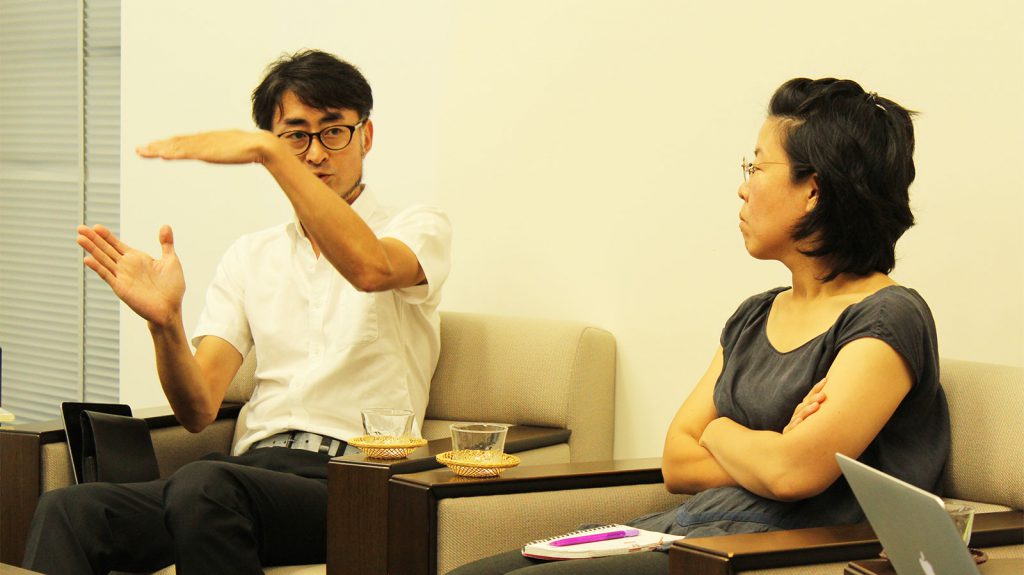
What are some difficulties that URAs go through?
Kato Well, there are a lot of difficult situations. Since the URA is involved with a variety of departments, roles, and hierarchies, not everything will run perfectly. It may take some time to adjust within the university when working on new things. What the other person says is, of course, correct, but sometimes I wished that they would allow us to be a little more flexible. There are times when difficult negotiations have led to stress.
Furuhata I must apologize, but I have never found the job to be difficult.
Kato That’s impressive!
Ebata Impressive. That is wonderful!
Furuhata It is because a URA is able to make use of any experience. The more experience you have, the better. I have previously worked at the Ministry of Foreign Affairs and international organizations, but the structure of these organizations is different. There were times as a URA where I thought I couldn’t do this anymore or felt helpless, but the URA is a new role, so it’s normal to have such thoughts. If you’re ever lost or you find yourself on shaky ground, just discuss it with someone and you may receive a response.
Wada The difficulty of being a URA is that a university is an organization that does not work towards one goal like a business would. Because it is such a diverse organization where people come with varied interests and intentions, when working on one project, a lot of effort is required to bring people together and produce something really great. I think that’s where the challenge lies.
Okada A Hokkaido University URA needs to break down the various levels of work from planning to paperwork. Because it is a flat organization, each person is continuously working on various tasks regardless of how many keep coming up. It is fun, but can honestly be draining (laughs). Sometimes one or two years is not enough to get to a point where something has actually been accomplished.
Why did everybody here become a URA in the first place?
Kato I worked at a research institute until my term expired and I had to find another job. I was torn between staying as a researcher and becoming a URA. I thought that supporting the university’s research could lead to more discoveries compared to what I would achieve by conducting research on my own. I also thought I could be in a position where I could see cutting-edge data before others did.
Wada I wasn’t a researcher originally. I was at an innovative venture-type company where I commercialized new inventions and R&D, and human-resource work. I was interested in an organization’s assets. When I came back to Hokkaido, openings for a URA had just come out. I didn’t really understand the description when I read it, but I applied thinking of it as a university goldmine or a job where I would uncover potential. In the interview, I threw in a one-liner and then they hired me (laughs).
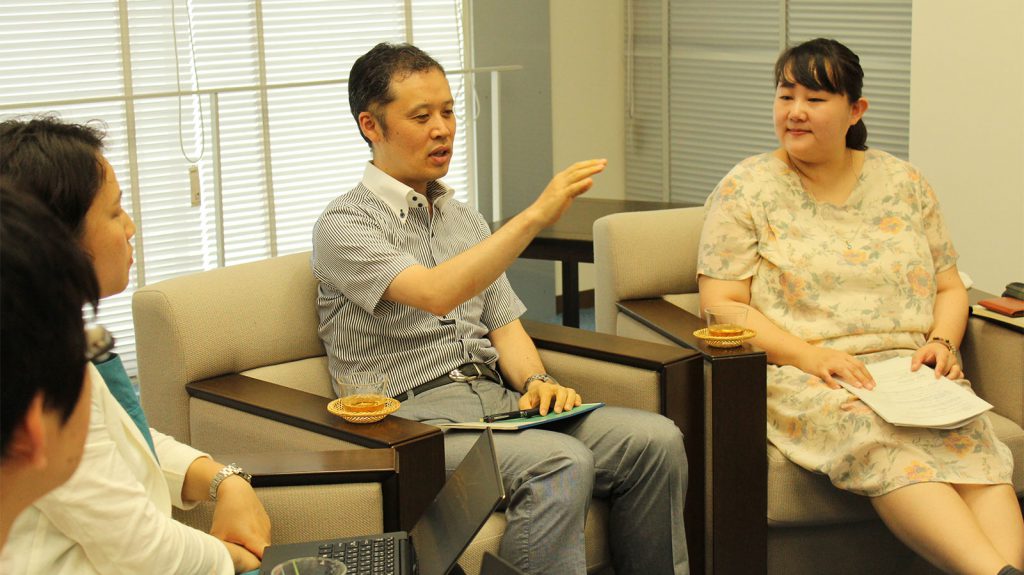
What did you say?
Wada I showed them a picture of a bridge and said, “You might not be able to see this, but I am highly mobile!” I think I was hired because they laughed at that (laughs).
Furuhata Did you say “a bridge between administration and teaching staff!” or something like that?
Wada I didn’t say that (laughs).
-Do they ask you to come up with one-liners in the URA interviews?
Ebata They definitely wouldn’t. (laughs)
Furuhata They made me give a presentation afterward.
Kato They didn’t have that when I was there. Did they get stricter because I did something wrong? (laughs)
Takagi I didn’t need to do one either. But they did make me write a composition.
Kato Aren’t they trying to understand how the applicant thinks or gauge their personality from their presentations or jokes?
Ebata No, no! They have never asked the applicants to tell jokes! (laughs)
Furuhata After I worked as a teacher at the university, I was in a specialized agency for the UN in Canada. It was a very interesting job because I interacted with various people in an international organization. When I returned to Japan, I dreaded the idea of once again being confined to my research laboratory. It was when I was looking for a job after returning that the openings for the URA position were announced. The URA role was well suited for me since I had a PhD and I could utilize my experience and skillset. I decided on Hokkaido University because it provided a future—their URAs are given extended contract periods and can work on a tenure track, things that other universities did not offer.
Uehara Like Mr. Omata said, a tenure track for Hokkaido University URAs was quite appealing. I previously worked in the research laboratory of a company, but I wanted to try and do management planning work as a head of R&D when I reached my 40s. Although that is why I was interested in becoming a URA, going through the experience of being properly hired, especially as a full-time staff at Hokkaido University, was a strong enough motive to apply.
Takagi Me too. I followed my husband to Hokkaido, but I can’t get hired by private companies with a PhD. So at the beginning, I worked as a research assistant at the university, but what I realized when I was supporting the researchers’ clerical work and research projects was that, because of their strong sense of independence, many researchers had poor perception based on their instinctive wariness to rules and paperwork. I was praised for being able to quickly finish routine work without any resistance. I started thinking about my aptitude for such work, and that’s when the initial opening for URAs were announced. Research assistants were usually hired after five years, but it seemed it was a different case for Hokkaido University URAs.
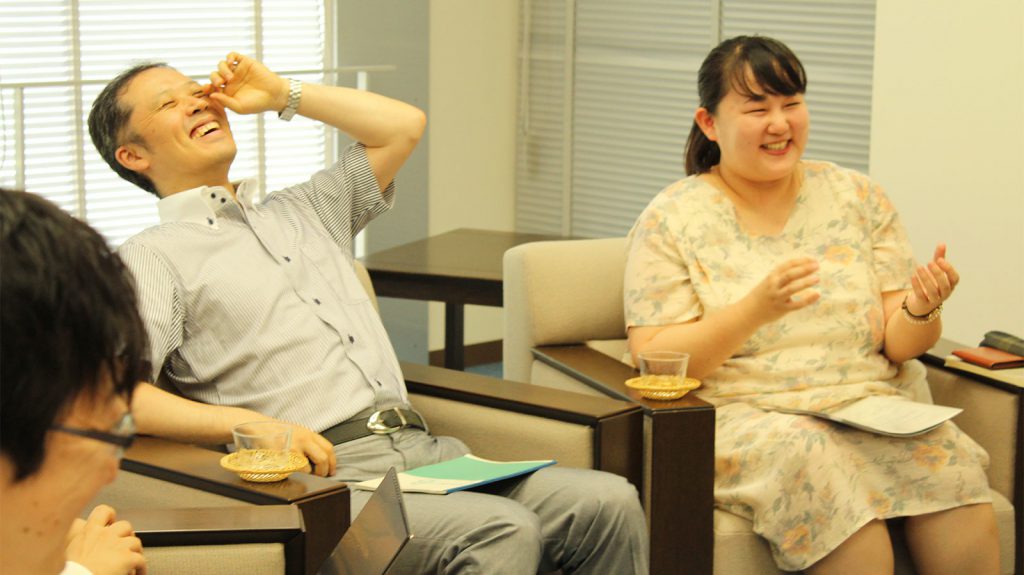
-What do you think Hokkaido University URAs should do for the future?
Uehara Although current Hokkaido University URAs have their own responsibilities, I think they should think about ways to work as an organized team.
Furuhata It’s very difficult to explain what the role of a URA was at the beginning. My acquaintances and colleagues would ask if I’d come back if there was a research position and I would wonder why they’d ask me that. I’m having fun at this job, because I believe I’m doing work that researchers cannot do. It’s not like I’m sad or I have regrets or anything, but I wish they would be more aware of the importance of this job. But that is my responsibility. A URA wants to work so that others can understand that a URA does things that only a URA can do. It will be a very long time before people at the university find the URA role appealing. Hokkaido University is working towards cultivating this kind of thinking.
Kato I jokingly tell people that I have joined the URA mafia and will control the entire university (laughs). Even if Hokkaido University URAs are management specialists, can we really manage the university’s future? I’m not sure about this yet. But as people who understand all aspects of the university, we can be in a position that informs outsiders, the teaching staff, and clerical administration about the university’s objectives and thinking. When the time comes, I’d like it if they became fully aware of our work as opposed to them not knowing who we are.
Wada I somewhat understand Mr. Kato’s comment about the URA mafia. The university’s executives are replaced every few years, right? I believe there needs to be some sort of structure where this trend can be examined from time to time and the pros and cons can be determined over a long term even if people are replaced. Also, like what Mr. Omata said, I want the URA to be an admired and enjoyable profession.
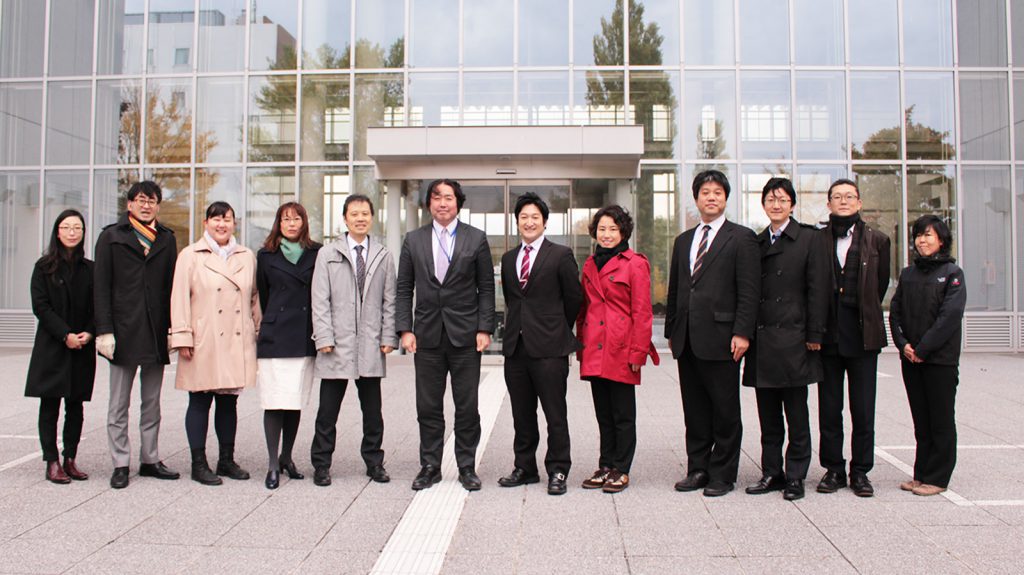
This article is a part of ScienceTalks Magazine issue Welcome to the University Research Administrators as Strategic Management Leaders.


